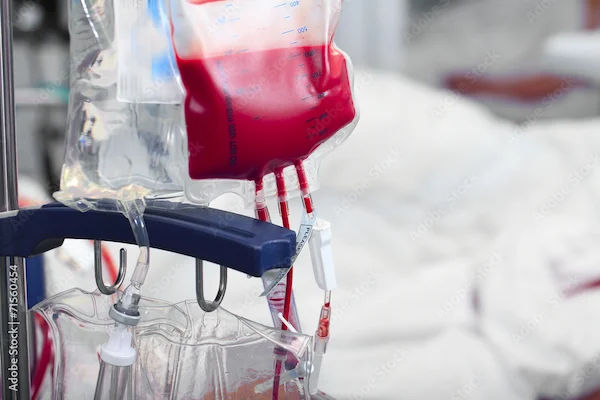Guide to Decoded Intensive Care Unit Icu
Demystifying the ICU: A complete guide to understanding what an Intensive Care Unit is, why patients are admitted, the specialized care provided, and what to expect as a patient or visitor.


Introduction
The Intensive Care Unit, or ICU, is often seen as a mysterious and intimidating place. For families and patients, it represents a critical juncture—a place where the fight for life is most intense. The constant beeping of monitors, the complex web of tubes and wires, and the specialized medical team can feel overwhelming. This guide aims to decode the intensive care unit, transforming it from a place of fear to one of understanding. We will walk you through everything from the advanced equipment and the dedicated staff to the patient experience and how you can best support your loved one. Whether you are anticipating a stay or are currently navigating this challenging time, knowledge is a powerful tool that can provide comfort and clarity amidst the uncertainty of critical care.
What is an Intensive Care Unit (ICU)?
An Intensive Care Unit (ICU), also known as a Critical Care Unit (CCU), is a specialized department within a hospital designed to treat patients with life-threatening illnesses or injuries. Unlike standard hospital wards, the ICU provides around-the-clock, close monitoring and support from a highly trained team using advanced medical technology. Think of it as the hospital's "high-alert" zone, where the patient-to-nurse ratio is very low (often 1:1 or 1:2) to ensure immediate attention to any change in condition.
The Core Purpose of Critical Care
The primary goal of the ICU is twofold: to stabilize patients in critical condition and to support their vital organ functions while the underlying illness or injury is treated. This involves continuous monitoring of heart rate, blood pressure, breathing, and oxygen levels. The care is proactive and aggressive, aimed at preventing further complications and providing the body with the support it needs to heal.
Different Types of ICUs
Not all ICUs are the same. Larger hospitals often have specialized units to provide tailored care:
Medical ICU (MICU): For patients with severe medical conditions like respiratory failure, sepsis, or metabolic crises.
Surgical ICU (SICU): For post-operative patients who have undergone major surgery (e.g., cardiac, transplant, neurosurgery).
Cardiac Care Unit (CCU): Specializes in heart-related issues like heart attacks, arrhythmias, or heart failure.
Neurological ICU: Cares for patients with strokes, brain hemorrhages, traumatic brain injuries, or seizures.
Pediatric ICU (PICU) & Neonatal ICU (NICU): Dedicated to critically ill children and newborns, respectively.
Understanding the specific type of intensive care unit your loved one is in can help you understand the focus of their treatment.
Consult Top Specialists for Personalised Tips
The ICU Team: Your Loved One's Medical Experts
The ICU is run by a multidisciplinary team of specialists who work in concert. Knowing who they are can make interactions less daunting.
The Intensivist: The Captain of the Ship
An intensivist is a physician specially trained in critical care medicine. They are board-certified in a primary specialty like internal medicine, anesthesia, or surgery and have completed additional fellowship training in ICU care. This doctor leads the team, makes the major treatment decisions, and coordinates care with other specialists. They are the primary point of contact for families regarding the overall medical plan.
Highly Specialized ICU Nurses
ICU nurses are the backbone of the unit. They have advanced training in managing complex equipment, administering potent medications, and providing meticulous care. Their constant presence at the bedside means they are often the first to notice subtle changes in a patient's condition. They are a vital source of information and comfort for both the patient and the family.
The Multidisciplinary Support Team
Respiratory Therapists: Experts in managing ventilators and helping patients with breathing difficulties.
Pharmacists: Ensure that complex medication regimens are dosed correctly and safely, checking for interactions.
Physical & Occupational Therapists: Work to maintain muscle strength and mobility even while patients are bedridden, which is crucial for recovery after intensive care.
Dietitians: Calculate precise nutritional needs, often managed through feeding tubes.
Social Workers & Case Managers: Provide emotional support, help with communication, and assist with planning for discharge or transfer.
A Look Inside: Common ICU Equipment Explained
The technology in the ICU can be alarming, but each machine serves a specific life-supporting purpose.
Monitors and Lines: Tracking Every Vital Sign
The central monitor displays waveforms and numbers tracking heart rate (ECG), blood pressure (often via an arterial line), oxygen saturation (pulse oximeter), and more. ICU patient monitoring equipment is designed to alert the staff instantly if any value falls outside a safe range.
Life Support Technology: Ventilators and Beyond
The ventilator (or breathing machine) is one of the most common pieces of equipment. It breathes for patients who are too sick to do so effectively on their own. Tubes are connected through the mouth (endotracheal tube) or neck (tracheostomy). Other advanced devices include dialysis machines for failed kidneys and ECMO (Extracorporeal Membrane Oxygenation), which acts as an artificial heart and lung outside the body.
IV Pumps and Feeding Tubes
Multiple IV pumps deliver a constant stream of medications—for blood pressure, sedation, pain control, and antibiotics. A nasogastric (NG) or orogastric (OG) tube may be in place to provide liquid nutrition directly to the stomach or to drain contents.
Conclusion
Navigating the world of the intensive care unit is undoubtedly challenging. The environment is complex, the terminology can be confusing, and the emotional toll is high. However, by demystifying the purpose, the people, and the technology, we hope this guide has empowered you with knowledge. Understanding that the constant monitoring is a form of extreme vigilance, that the team is a dedicated group of specialists, and that the journey often extends beyond the ICU doors can provide a crucial sense of perspective and control. Remember, you are not just a visitor; you are an essential part of your loved one's care team as their advocate and supporter. Focus on clear communication with staff, take care of your own health, and trust in the remarkable capabilities of modern critical care medicine. If at any point you have specific concerns about a patient's symptoms or recovery progress, consulting a doctor for guidance is always recommended.
Consult Top Specialists
Consult Top Specialists for Personalised Tips

Dr. Shiv Krishna Mitra
General Physician/ Internal Medicine Specialist
15 Years • MBBS GEN. MED. PGDRM, MCH
Kolkata
Samaritan Clinic, Kolkata

Dr. Sanjukta Das
General Physician
9 Years • MBBS
Kolkata
MCR SUPER SPECIALITY POLY CLINIC & PATHOLOGY, Kolkata

Dr. Uddalak Chakraborty
Neurologist
8 Years • MBBS, MD(GENL.MED.),DM(NEUROLOGY)
Kolkata
MCR SUPER SPECIALITY POLY CLINIC & PATHOLOGY, Kolkata

Dr. Santanu Mandal
General Physician/ Internal Medicine Specialist
18 Years • MD (Physician), DNB (General Medicine)
Kolkata
MCR SUPER SPECIALITY POLY CLINIC & PATHOLOGY, Kolkata
(25+ Patients)

Dr. Anindita Mondal
General Physician/ Internal Medicine Specialist
8 Years • MBBS
Kolkata
VDC Clinic, Kolkata
Consult Top Specialists

Dr. Shiv Krishna Mitra
General Physician/ Internal Medicine Specialist
15 Years • MBBS GEN. MED. PGDRM, MCH
Kolkata
Samaritan Clinic, Kolkata

Dr. Sanjukta Das
General Physician
9 Years • MBBS
Kolkata
MCR SUPER SPECIALITY POLY CLINIC & PATHOLOGY, Kolkata

Dr. Uddalak Chakraborty
Neurologist
8 Years • MBBS, MD(GENL.MED.),DM(NEUROLOGY)
Kolkata
MCR SUPER SPECIALITY POLY CLINIC & PATHOLOGY, Kolkata

Dr. Santanu Mandal
General Physician/ Internal Medicine Specialist
18 Years • MD (Physician), DNB (General Medicine)
Kolkata
MCR SUPER SPECIALITY POLY CLINIC & PATHOLOGY, Kolkata
(25+ Patients)

Dr. Anindita Mondal
General Physician/ Internal Medicine Specialist
8 Years • MBBS
Kolkata
VDC Clinic, Kolkata
More articles from General Medical Consultation
Frequently Asked Questions
How long can a patient stay in the ICU?
The length of stay in an ICU is highly variable and depends entirely on the individual's condition, response to treatment, and underlying illness. It can range from a single day to several weeks or, in rare cases, months. The care team provides the best estimates based on daily progress.
Why are visiting hours in the ICU so strict?
Strict visiting hours and limits on the number of visitors are necessary to prevent patient overwhelm, minimize the risk of infection, and allow the medical staff to perform complex procedures and nursing care without interruption. These rules are in place to prioritize patient safety and recovery.
What is ICU delirium and is it permanent?
ICU delirium is a common acute brain dysfunction characterized by sudden confusion, disorientation, and agitation. It is often a temporary condition triggered by the illness itself, medications (especially sedatives), sleep disruption, and the ICU environment. While frightening to witness, it usually resolves after leaving the ICU, though full recovery can take time.
Can patients hear me when they are sedated?
While heavily sedated patients are unconscious, as sedation is lightened, hearing is often the first sense to return. Many patients later recall hearing familiar voices during this time. Speaking calmly and reassuringly to your loved one, even if they don't respond, is encouraged as it can provide comfort and a connection to reality.
What happens after the ICU?
Patients typically do not go directly home from the ICU. They are first transferred to a 'step-down' unit or a general hospital ward for less intensive monitoring before finally being discharged. Recovery often involves rehabilitation to regain strength, mobility, and cognitive function. If your loved one is struggling with recovery after intensive care, consulting a doctor online with Apollo24|7 can be a convenient first step to discuss symptoms and connect with rehabilitation resources.




